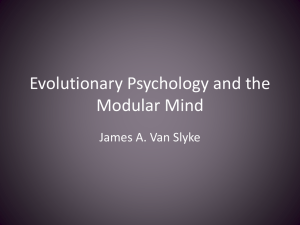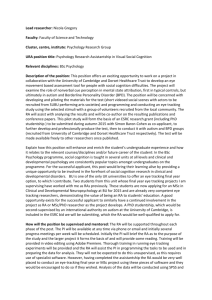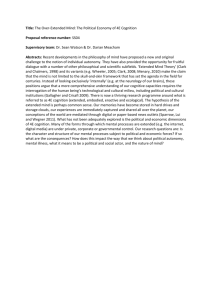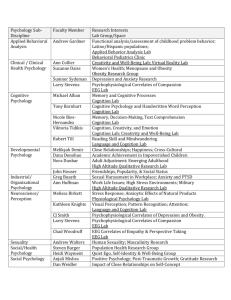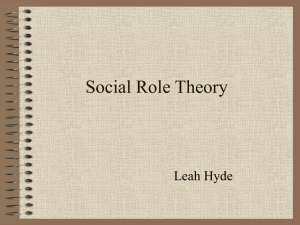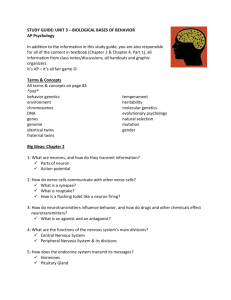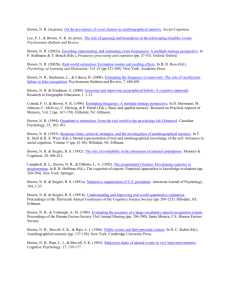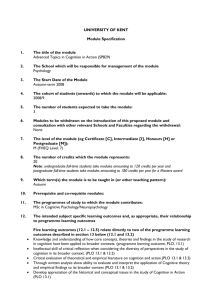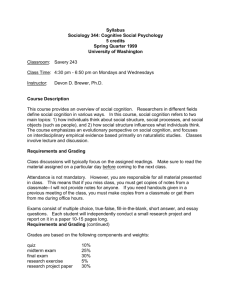READINGS FOR THE COGNITIVE PSYCHOLOGY COURSE, OCT
advertisement
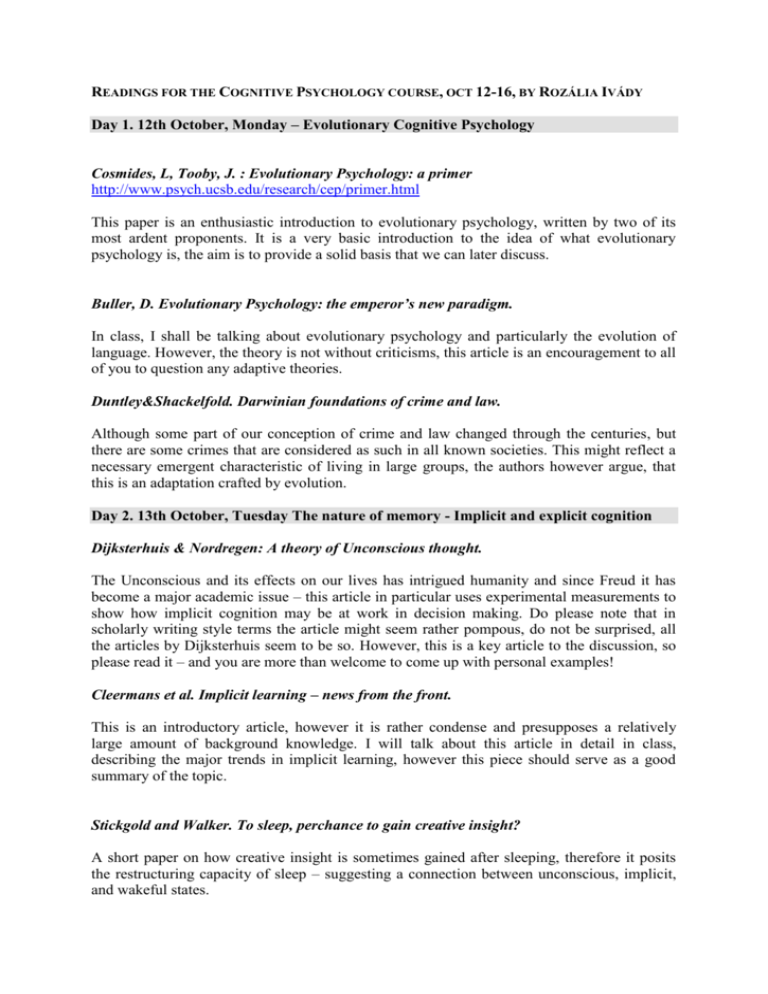
READINGS FOR THE COGNITIVE PSYCHOLOGY COURSE, OCT 12-16, BY ROZÁLIA IVÁDY Day 1. 12th October, Monday – Evolutionary Cognitive Psychology Cosmides, L, Tooby, J. : Evolutionary Psychology: a primer http://www.psych.ucsb.edu/research/cep/primer.html This paper is an enthusiastic introduction to evolutionary psychology, written by two of its most ardent proponents. It is a very basic introduction to the idea of what evolutionary psychology is, the aim is to provide a solid basis that we can later discuss. Buller, D. Evolutionary Psychology: the emperor’s new paradigm. In class, I shall be talking about evolutionary psychology and particularly the evolution of language. However, the theory is not without criticisms, this article is an encouragement to all of you to question any adaptive theories. Duntley&Shackelfold. Darwinian foundations of crime and law. Although some part of our conception of crime and law changed through the centuries, but there are some crimes that are considered as such in all known societies. This might reflect a necessary emergent characteristic of living in large groups, the authors however argue, that this is an adaptation crafted by evolution. Day 2. 13th October, Tuesday The nature of memory - Implicit and explicit cognition Dijksterhuis & Nordregen: A theory of Unconscious thought. The Unconscious and its effects on our lives has intrigued humanity and since Freud it has become a major academic issue – this article in particular uses experimental measurements to show how implicit cognition may be at work in decision making. Do please note that in scholarly writing style terms the article might seem rather pompous, do not be surprised, all the articles by Dijksterhuis seem to be so. However, this is a key article to the discussion, so please read it – and you are more than welcome to come up with personal examples! Cleermans et al. Implicit learning – news from the front. This is an introductory article, however it is rather condense and presupposes a relatively large amount of background knowledge. I will talk about this article in detail in class, describing the major trends in implicit learning, however this piece should serve as a good summary of the topic. Stickgold and Walker. To sleep, perchance to gain creative insight? A short paper on how creative insight is sometimes gained after sleeping, therefore it posits the restructuring capacity of sleep – suggesting a connection between unconscious, implicit, and wakeful states. Day 3. 14th October, Wednesday Psycholinguistics – the effect of language on cognition Women’s hidden abortion transcripts in Brazil. Abortion in Brazil is not socially accepted, but it is very often inevitable because of poverty. The article describes how women – most of them are deeply religious – deal with the problem by restructuring it. Boroditsky: Linguistic relativity. Language has proven to have an effect on thinking in various areas, some of them very abstract. Interesting examples are discussed, some of them will not be mentioned in class, but might be very useful for your arguments. Majid et al. Can language restructure cognition? The case for space A very good summary article, however it is rather difficult to understand it at first for those not familiar with the topic. I shall talk in detail about the issue at hand in class: namely that space is described very differently in some languages and how this might affect their spatial cognition in general. This article particularly argues for a strong effect of this structuring frame on cognition. Day 4. 15th October, Thursday. Cognition both hot and cold – may reason prevail above all? Simon Baron-Cohen. The extreme male brain theory of autism. Baron-Cohen makes a reformulation about the cognitive differences between men and women (traditionally an opposition between rationality and irrationality), citing data that are wellknown, but placing them in a new perspective. This is a very dense summary that I will elaborate on much more in class P. Boyer. Religious thought and behaviour as by-products of brain function. There are some universal characteristics of religion, though Boyer does not consider religion as an adaptation per se, but he considers that some of the inherent attributes of our minds automatically create religion. Tetlock. Thinking the unthinkable: sacred values and taboo cognitions. There are things you would not do or would not sell for all the money in the world, they are absolute and inviolable. However sometimes it becomes extremely difficult to stick to these so called sacred values – the question is, what do we do then?
